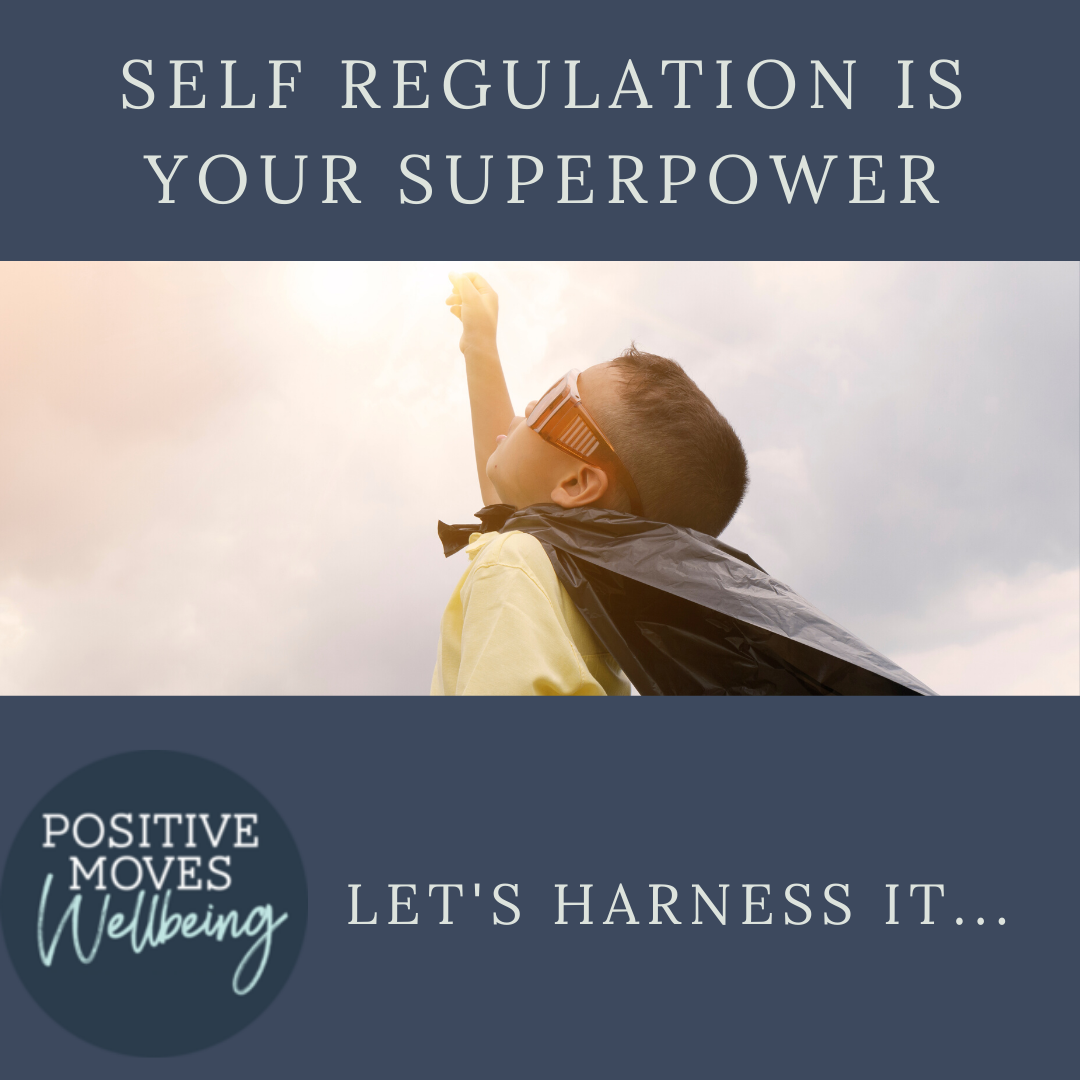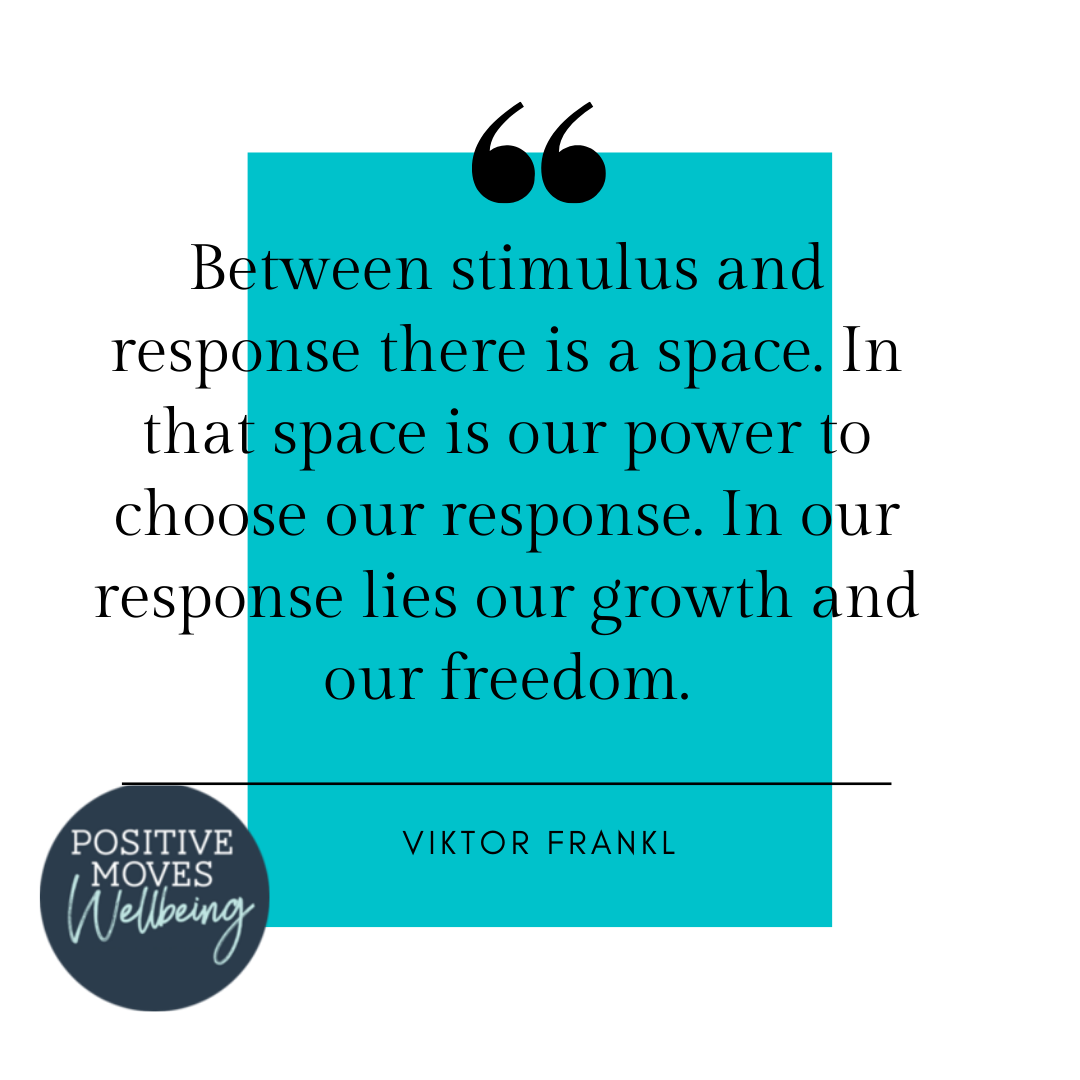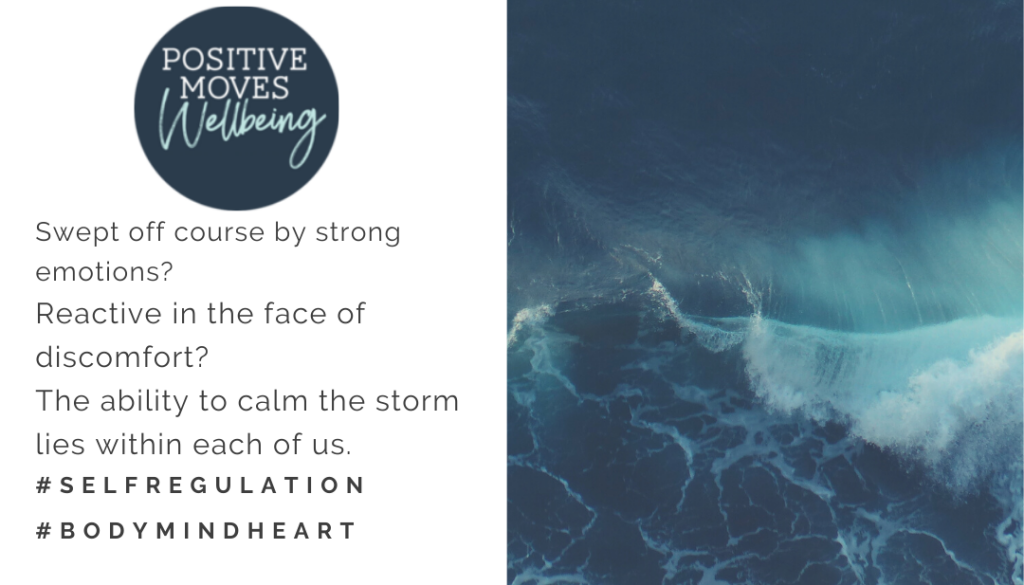A Superpower To Manage Strong Emotions
Do you get swept off course by strong emotions? Do you become reactive when discomfort shows up? Is it hard for you to engage with others when anxiety or fear are present? Do you struggle to calm yourself in the aftermath of criticism or a heated exchange?
We are all marvellous monsters with the capacity for a spectrum of emotion. How we experience and express our emotions is shaped by our history, beliefs, experience, and circumstances. We become defined by how we relate to our emotions – the way particular emotions trigger us, the way we are overwhelmed by them, the meaning we attach to them, and the way we respond to them. Self-regulation is a superpower waiting to be harnessed. It is a component of our emotional intelligence and we need to develop and refine our skills throughout life.
How Do We Manage Emotions?
The word emotion means ‘to move out, stir and agitate’ and our emotions are energy in motion. They are the bridge between our thoughts and physical action whilst our feelings are the sensations that accompany the shifting energy. Experiencing a full range of emotions is healthy but most of us fail to effectively regulate and process our emotions and this can result in stagnant energy stuck in our body or using others as our emotional dumping ground. Emotion is intended to move through us, to be expressed in a healthy, well-regulated manner.
Emotional intelligence (EQ) refers to the ability to understand and manage our own emotions and to recognise and influence the emotions of those around us. Self-regulation is one component of EQ and when we learn to regulate our responses we gain a sense of control over how we feel. We become able to manage the signals in our body and mind to calm distress and more effectively engage our brain power.
Our tendency to react instead of respond to emotionally charged situations is a common human challenge, after all we are designed to react to threats. The ability to regulate our emotional experience is like a safety valve allowing us to moderate our response rather than become defensive, dissociated or dismissive. When we can more skilfully manage our emotions we have less need for unhealthy habits to numb or suppress those feelings.

Why Are We Not Taught This Superpower?
Traditionally psychology has focussed on a ‘top down approach’ to addressing mental health and wellbeing. We are proud of our huge human brain and it’s amazing capability and that makes us pretty “heady”. The skills associated with emotional intelligence are often dismissed as ‘soft skills’ with an assumption they come naturally and don’t require our conscious attention. We now recognise without the foundation of sound emotional health and regulatory control we can’t access our full potential.
Messages conveyed, directly or implied, may also have taught us certain emotions are not welcome – perhaps we have embedded the belief that anger is bad, or learned joy is uncivilised, or crying is weak. Instead of learning to accept all our emotions, we may inadvertently associate them with fear and shame and so want to push them away.
Society plays its part in shaping our emotional health too. Value is placed on instant gratification, fast responses, quick results, and keeping ahead of the game. The current pandemic has brought examples of pressure for quick, decisive action in the face of uncertainty rather than recognition that considered decision making is required in challenging circumstances. When life presents volatility, uncertainty, complexity and ambiguity we need to apply self-regulation skills more than ever.
What Are The Benefits of Self-Regulation?
Being able to regulate our response to strong emotions provides us with an antidote to reactivity and prevents us saying and doing things against our better judgement. The root cause of our reactivity is the difficulty we have tolerating the sensations we experience. When we are able to manage our internal triggers without impulsively reacting we can choose to respond in a way that aligns with our intentions and values.
Self-regulation has a positive impact on how we deal with stress, the way we develop and maintain relationships, how we make decisions, and the manner in which we handle change and challenge. It is vital to our mental health and wellbeing and that of our family, our community and our organisations.

How Do We Build This Superpower?
As with all aspects of our mental health and wellbeing, we build this capacity in an integrated manner that involves using our body, mind and heart.
Work With The Body – Build Nervous System Resilience
- We can train the nervous system and tone our vagal nerve just as we would train muscles and tone our abs. Adapting the pattern of our breathing can shift our emotional state (to energise and activate or to calm and soothe)
- By noticing and befriending the sensations that accompany strong emotions we can gradually expose ourselves, and become familiar with, feelings in our body. This practice increases our confidence to handle shifts in our emotional energy.
- Our more sedentary lifestyle and more sanitised emotional responses mean we have fewer opportunities to express our emotions openly. Traditionally we would wail, cry, dance and engage in ceremonies together and without a way out emotion can become embedded in the body. Expressive activities such as singing, chanting, dancing, shaking, bouncing, rocking, and embodied therapies provide an outlet for healthy emotional expression. Creative outlets such as writing, drawing, expressive arts allow us to express the emotion outside of our body.
- We can build a healthy distress tolerance through sitting with discomfort rather than immediately trying to get rid of the feeling. Practice slowing down and getting curious about what the sensation in your body is trying to tell you.
Work With The Mind – Upgrade Your Operating System
- A resilient well-toned nervous system improves our capacity for higher order cognitive processing and provides the foundation for exploring how our existing mindset and beliefs are informing our emotional responses.
- By conducting an audit of our belief system we can check on the origins of the story we are telling ourselves about a particular emotion or sensation. What messages have we embedded and attached to the emotion? How does this narrative align with the position we are in here and now? Are we operating on remnants of our past experience that we have failed to update?
- Consider our recurring patterns of thinking – are they helpful or unhelpful in moving us in the direction we choose? How do we react if we buy into and reinforce these patterns of thinking
Work With The Heart – Healthy Relationships
- If we want our brains to function at their highest level we need to connect with others. Connection is in our nature and we are social beings. The relationships we share with others influence how we regulate our emotional state.
- Spending time with another person in ‘joint attention’ or ‘joint movement’ increases brainwave coherence with that person (feeling like we are one the same wavelength). This sense of connecting and being understood is reassuring. Teams and partners who have brainwave coherence solve problems more efficiently and communicate more effectively.
- Find your tribe. Regularly engaging with others who share our values builds a connection to something bigger than yourself and these communities of connection help us to co-regulate.
- Practice expressing your emotions openly in trusted relationships (with friends, partners, therapists).
- Be there for others and actively listen as they share their emotional experience. This also provides an opportunity to increase our tolerance for sitting with challenging emotions without being tempted to quickly fix or resolve them
It takes conscious attention to reclaim our emotions and learn how to handle them. As we grow and develop skills in self-regulation we can accept there are no right or wrong emotions and create safe space for them all within us.
If you’d like to calm some stormy waters in your life, let’s connect. We can work together in person, on a wellbeing walk, by telephone, or via telehealth.
#workinprogress #selfregulation #nervoussystemregulation #bringingpsychologytolife #therapyisforeveryone#integrativetherapy #mentalhealth #melbournepsychologist ##accessibletherapy #mentalhealth #brainhealth #breathwork #meditation #mindbody #networkofwellbeing #healforlife #resilienttogether #thebodykeepsthescore #habitsofhealth #growyourmind #outdoortherapy


